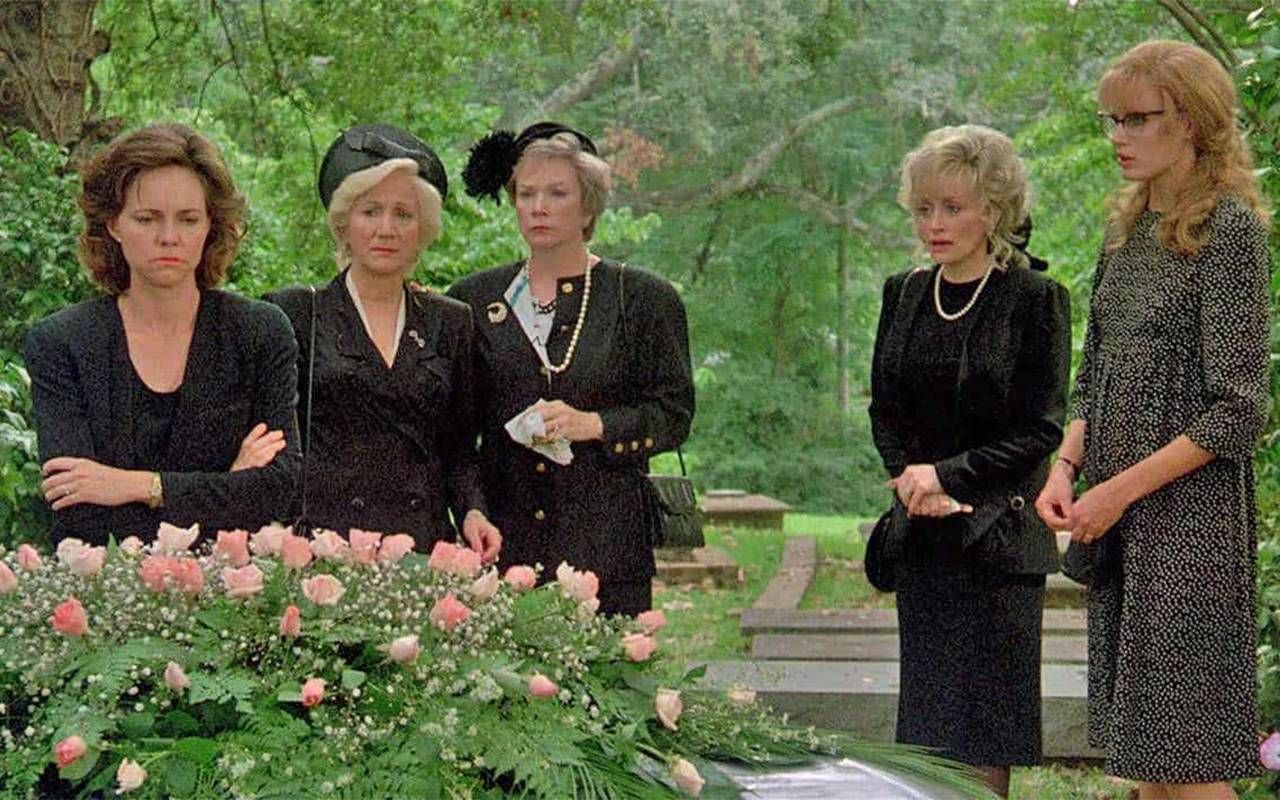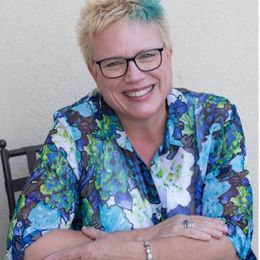Breaking the 'Widow Rules'
I've lost two wives and I know there can be a better end-of-life experience and a better grieving process
When I tell my "how I got here" story, the usual responses are sad looks and a weird sigh that most seem to think fits responding to loss. You know that experience, especially if your partner has died. It's one the grievers I work with learn to loathe.
It's confusing when you smile in response. You are supposed to be sad, perhaps a bit hopeless, and, very possibly, needy. You have a role to play. And while we may be sad at times, we need to smile and feel capable just like everyone else.

You can insist that you are treated as a couple, not a caregiver and patient.
After the losses I've experienced on the 'bingo card' of life, my take on how to do illness, dying and grief is a bit different.
Working in hospice as a social worker and administrator added to that shift, and quite possibly to my sense of humor in talking about it. Hospice staff have a bit of a twisted sense of humor simply to survive, but we don't take it out to share in public. We should. Research shows that families experiencing terminal illness need humor in those around them. Remember the cemetery scene in the movie "Steel Magnolias?"
A Need to Take Control
They also need a sense of control. Dying is not like the movies; it takes work, but there can be some magic in the end. It needs to be actively managed, not something that takes control of your life: the couple should make the decisions, with education, great hospice care and setting boundaries to preserve their roles.
You can insist that you are treated as a couple, not a caregiver and patient. You should be allowed to use your anticipatory grief together to finish your relationship, and to say goodbye in a way that works for you.
Terminal illness can be sneaky. You cope with the disease process and adapt, over and over. And suddenly that ongoing disease is now going to be terminal.
My first wife, Linda, survived metastatic breast cancer — but died of pulmonary fibrosis a decade later from chemo. My second wife, Casper, (yes, she was named after a friendly ghost) died of Lewy Body Dementia. Think Robin Williams, but not the funny part. That started with a weird assortment of symptoms that were repeatedly misdiagnosed. Her final diagnosis was months before she died, and only after I asked if that was what we were dealing with.
It was managing their illnesses and symptoms that allowed control over some of the craziness that is today's medical system. (That, and being an outspoken wife who is also a social worker, much to their dismay at times.) I am not alone in that experience.
Steps to Take to Manage a Loved One's Illness
So how do we manage facing ongoing illnesses that have the potential for becoming life shortening?
- Document! I know, it takes time, and it feels unending. It’s hard to look at the words. Do it anyway. What are the symptoms throughout the day? What level is the pain? What works? What doesn’t? Who have you talked to? What have you been told? Take a medical notebook with you to every appointment.
- Write a summary for doctor’s visits. Use bullet points for easy reading. Write down what you need from the visit. Expect care that meets your needs and follow-up.
- Find an online community of caregivers/patients. They get it, where others will not. And they share survival humor.
- Get your advanced directives done. Get paperwork in order: A POLST (Physician’s Order Regarding Life Sustaining Treatment), trust or will, caregiving plan, end of life plan, memorial plans. Consider hiring a private end of life doula. There are some great books out now ("I’m Dead, Now What?" is popular). The National Funeral Directors Association has some helpful resources about having hard conversations. Unfinished plans and paperwork make things harder, and take away your control when others step in to do them for you.
What happens when the illness gets worse? It would be nice if doctors would tell us that our loved one is now considered terminally ill, but the reality is many will not. Many physicians do not tell families or patients when an illness is no longer treatable. Some will mention palliative care to open the conversation, but won't say hospice.
The National Hospice and Palliative Care Organization offers information about hospice care; hospice can extend life because a good care team reduces stress, and the support provided allows the patient and family to use their energy on quality of life, not battling insurance companies, pharmacies and unrealistic expectations of one another.
Her doctor said he didn't want to admit she would soon be "pushing up daisies." Seriously, he said that. He was uncomfortable saying he could not fix it.
I was a medical social worker, and Linda was a nurse. We both knew her doctor personally. I still had to ask for hospice care. Her doctor said he didn't want to admit she would soon be "pushing up daisies." Seriously, he said that. He was uncomfortable saying he could not fix it. But we knew we needed hospice. How do you get hospice to come to support you?
- Ask. You do not have to wait for a referral. You can call the hospice of your choice. They will visit and determine if your loved one meets criteria.
- Remember you have the power to choose the hospice, and you can change hospices if they do not meet your needs.
The end of life is the time to say all the things that have not been said. Apologies. Thanks. Discussing plans for a new future and permission to do what the survivor might need to do. It's both goodbyes and the beginning of creating a new life for the survivor, and a time for the dying person to close theirs. It's a time to still smile and to tell the funny stories. To make sure the dying person gets to say how they want to be remembered. And it is a time for the survivor to set boundaries around themselves so they can determine their future.
It's time to prepare for the Widow Rules — and to break them.
The Widow Rules? What?
Yes, the rules meant to make those around the griever more comfortable:
- “Don’t look so sad”.”
- “Don’t look so happy — you aren’t grieving enough.”
- “Smile more — it makes us sad to see you sad.”
- “Why are you smiling already? Don’t you miss them?”
- “Don’t make any changes for a year.”
- “You should make changes to not make it so sad.”
And — do not date! But date — just not where we can see it.
The Rules take away the power and autonomy of the person whose life has just changed irrevocably. If you are that person, you can break them. (If anyone asks, tell them a social worker said so). Those who do not redefine their lives get sick from stress and have a shortened life expectancy themselves.
The death of a partner or a loved one is the ultimate Ace in the card deck. Lay it down and set your boundaries. Then take your time and decide what you want to do with the rest of your life.
- How will you remember your partner, and how will you share them with others?
- What things need and want to change in your life?
- Who will be supportive, and cannot be supportive of who you are becoming?
The first time I was widowed, I changed my career path and returned to hospice, a career I loved. I remarried and found love again. (I was told by Linda to marry her hospice nurse. I argued. It turns out she was right. It's hard to argue with a dead person). I needed to smile again, and so did my kids.
My own research with therapists and hospice providers as well as grievers and hospice couples showed that all the couples wanted to talk about end of life and being treated as a couple.
The second time I was widowed (I don't recommend it) I reassessed my career path and moved into private practice full time. My love of writing lead me into authoring books. My desire to share both the lessons I'd learned and my clinical view of end of life and grief became a speaking career. And my experience with caregivers of dementia patients became the basis for a support group, now online, for caregivers that has been going for nine years. My shared love of dogs became a tiny heard of antique rescued poodle types who make my wife Stacie and I smile every day.
My own research with therapists and hospice providers as well as grievers and hospice couples showed that all the couples wanted to talk about end of life and being treated as a couple. Grievers wanted to talk about missing partners both emotionally and physically. But none of the providers were comfortable with those topics. None would bring it up. The survivors wouldn't because they thought they would be seen as breaking the Widow Rules.
It's time to change that. One couple, one widow or widower, one provider at a time. Let's break the Rules.


